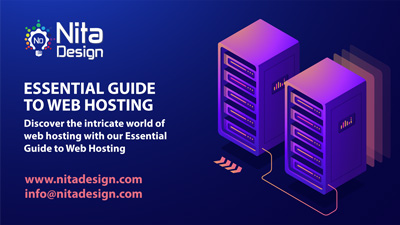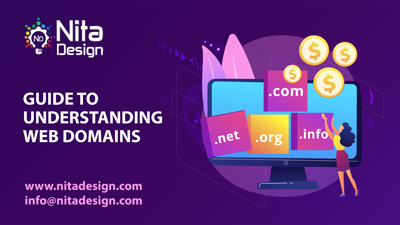What is VPN?
A VPN (Virtual Private Network) is a service that creates a secure, encrypted connection over a less secure network, like the public internet. It protects your privacy and anonymity online by masking your IP address and encrypting your internet traffic. VPNs reroute your data through remote servers run by the VPN provider, preventing third parties like your ISP or network administrators from monitoring or recording your online activities.
Benefits of Using a VPN
Using a VPN provides several key benefits: enhanced privacy and anonymity, access to blocked content, improved online security, and the ability to spoof your location. VPNs hide your IP address which prevents tracking of your online activities. They encrypt your data to safeguard it from cybercriminals. VPNs allow you to bypass censorship and access region-restricted content. You can also spoof your location to access localized content and websites when traveling abroad. Overall, VPNs give you control over your data privacy and security.
Common Use Cases of VPN
Some common use cases for VPN services include: accessing blocked websites and services when traveling overseas, securing public WiFi connections to prevent snooping, bypassing internet censorship imposed by authoritarian regimes, accessing region-locked streaming content like Netflix libraries abroad, torrenting securely and privately, hiding internet activity from ISPs and evading bandwidth throttling, and providing an added layer of security for remote workers accessing company resources.
How Does a VPN Work?
When you connect to a VPN server, it assigns you a virtual IP address which masks your real IP, hiding your identity and location. It then encrypts your internet traffic and reroutes it through the VPN provider's servers before exiting to the public internet. This prevents third parties from monitoring or recording your activities. The encryption also safeguards your data from interception or manipulation. VPN protocols like OpenVPN, IKEv2, and WireGuard facilitate secure connections. Leading providers have global server networks to optimize performance.
Types of VPN
Let's explore four distinct types of VPNs, each with its unique advantages and applications, ensuring you find the perfect fit for your digital privacy and connectivity requirements.
Remote Access VPN: Your personal tunnel to privacy. Imagine a secure hallway connecting you to the internet, masking your location and encrypting your data. Great for public Wi-Fi, accessing geo-restricted content, or simply adding an extra layer of security.
Site-to-Site VPN: Building bridges between networks. Think of offices in different cities linked through an invisible, encrypted highway. Businesses use this to securely share resources and collaborate across locations.
VPLS VPN: The LAN whisperer. This specialized VPN creates a virtual LAN over existing networks like MPLS, seamlessly connecting devices across geographically dispersed areas. Think of it as extending your local network with advanced encryption.
Browser-based VPN: Convenience with caveats. Imagine clicking a button and instantly being protected. These lightweight VPNs work directly in your browser, but offer less security and features compared to their downloadable counterparts.
Logging Policies
A VPN provider's logging policy is critical when choosing a service for privacy protection. Logging refers to recording user activity like IP addresses, browsing history, and connection data. While some logging assists with troubleshooting, excessive logging seriously compromises anonymity.
Types of logs:
- Connection logs record session details like IP addresses and duration.
- Traffic logs capture websites visited and data transferred.
- Metadata logs include device details and location data.
Key privacy risks of logging:
- Logs may be subject to subpoenas or government requests.
- Potential for unauthorized access or data breaches.
To maximize privacy, choose a VPN with a transparent no-logs policy meaning no user data collection or storage. When evaluating providers, carefully review privacy policies and logging practices. Seek services that:
- Undergo independent audits of no-logs claims.
- Adhere to strict privacy standards and protocols.
- Are committed to a zero-logging policy.
By choosing a reputable no-logs VPN, you can shield your online activity from prying eyes and enjoy true peace of mind. Scrutinize logging policies to find the best fit for your privacy needs.
Performance Considerations
VPNs provide unmatched privacy and security but can impact internet performance. Understanding the tradeoffs is key to optimizing your experience.
Primary considerations are reduced internet speeds and increased latency from encryption and traffic rerouting. Specific factors influencing performance:
- Server location - Distance adds latency.
- Encryption protocol - Some are slower.
- Network congestion - Can lower speeds.
Additional impacts:
- Latency from data packets encrypting and rerouting through VPN servers. Affects real-time communication like gaming and video conferencing.
- Distance to servers causes latency and slower speeds from network delays.
- Encryption overhead slows performance, especially on limited devices.
Strategies to optimize:
- Choose providers with robust server infrastructure to maximize speeds and minimize latency.
- Connect to nearby servers to reduce latency and boost speeds.
- Experiment with different protocols to balance security and speed.
- Limit bandwidth usage by closing unneeded apps and tabs.
- Upgrade to plans with dedicated servers and performance features.
With the right configuration, you can enjoy VPN security without sacrificing speed or connectivity. Understand the tradeoffs and implement optimization techniques.
Geographical Restrictions
Geographical restrictions limit accessing online content based on location. Geo-blocking restricts websites, streaming, and e-commerce by IP address or region.
Reasons include:
- Licensing agreements limiting distribution rights.
- Copyright holders preventing unauthorized access.
- Government censorship controls.
VPNs bypass restrictions by encrypting traffic and routing it through remote servers, masking your IP and spoofing location.
Benefits:
- Access blocked content.
- Enhanced privacy and security.
- Anonymity from tracking.
Consider legal and ethical implications. While accessing geo-blocked content with a VPN is generally legal, circumventing copyright or illegal activities may violate laws.
Some services block VPNs entirely. Weigh benefits against potential access issues.
Setting Up a VPN
Setting up a VPN is a straightforward process across devices like Windows, Mac, iOS, and Android. Simply select a reliable provider, create an account, download the VPN client, log in, and connect to get started. Most providers offer user-friendly apps while some may require router or manual configuration. Be sure to choose the optimal server location for the best experience.
Can VPNs Be Tracked?
While VPNs provide greater privacy, some VPN services may still collect certain usage data. Quality providers promise a strict no-logging policy to prevent tracking. Using an anonymous payment method also enhances privacy. Additionally, VPN protocols like OpenVPN and WireGuard are more secure and private than alternatives. So while properly configured VPNs minimize exposure, comprehensive privacy requires careful provider vetting.
Is VPN Safe?
Reputable commercial VPN providers utilize secure encryption protocols and practices to keep connections private and data safe from prying eyes. However, free or public VPN services often lack robust privacy standards, security audits, and may have hidden risks. So it's important to choose a trustworthy paid provider that guarantees no activity or connection logging for full safety. Beware of false claims around security and logging.
Importance of VPN
VPN services fulfill crucial needs today around online privacy, data security, and unfettered access to the internet. By encrypting connections, VPNs prevent ISPs and network operators from monitoring your activities. Their ability to bypass geo-restrictions expands information access. VPNs give greater control over your digital presence and footprint. For activists, journalists, remote workers, travelers and average consumers alike, VPNs provide much-needed security in an increasingly surveilled and restricted internet environment.
Conclusion
In summary, VPNs provide multipurpose utility for online privacy, access, and security needs through encrypted tunnels. While setup is straightforward, choose providers carefully based on logging policies, server networks, and security standards. Use best practices for configuration and connect using optimal protocols and server locations for performance. While not flawless, VPNs remain indispensable tools for asserting digital autonomy. This guide equips you to make informed decisions about deploying VPN protection based on your specific use case and risk profile. Take control of your online presence by considering how VPN services can help you browse freely and securely.
Writen by Krzysztof Niecikowski @ Nita Design. Last update: 2024-02-11T00:00:00+00:00





